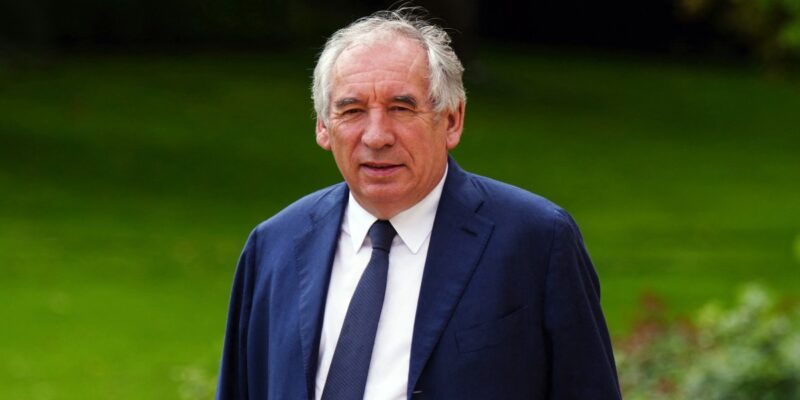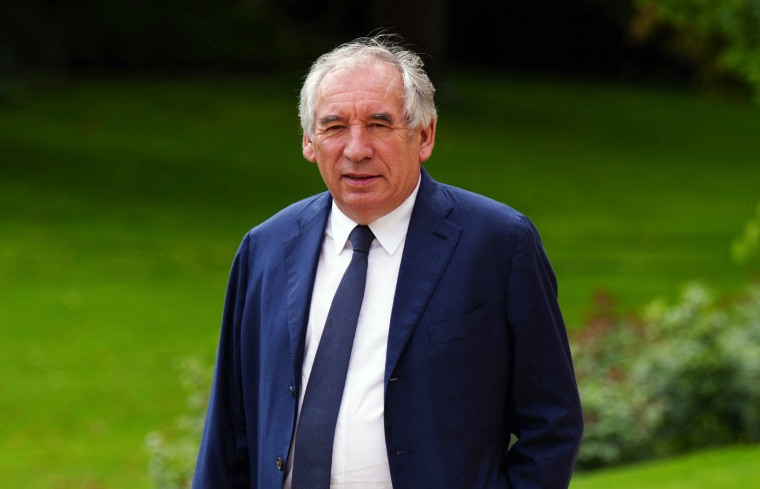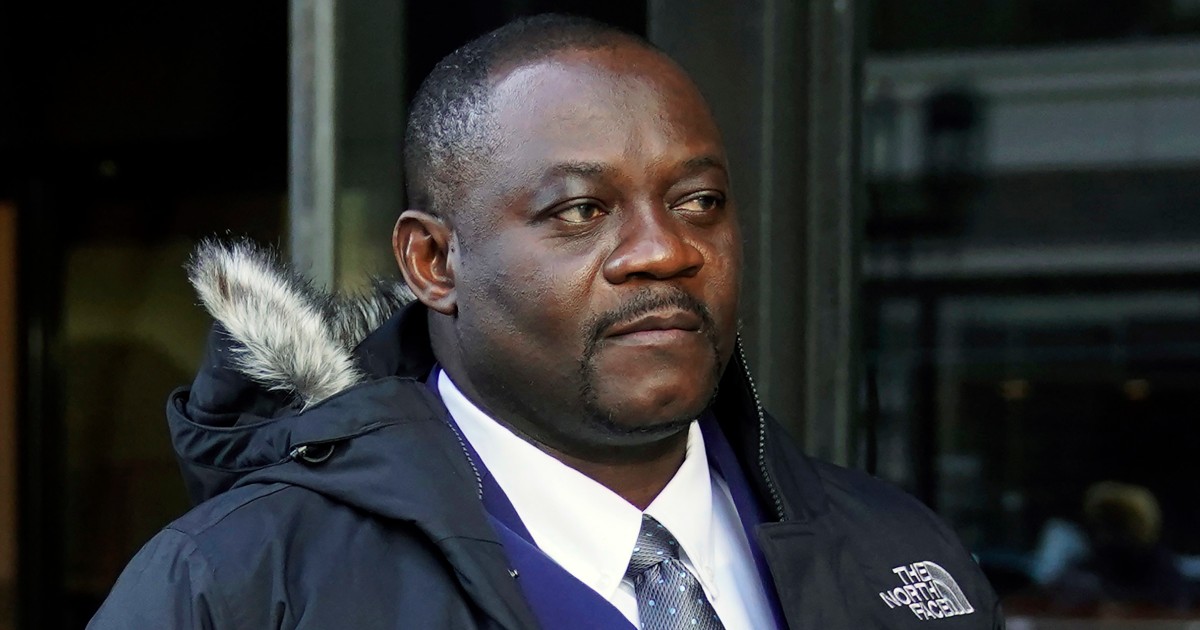
President Emmanuel Macron named centrist ally François Bayrou as France’s new prime minister on Friday as he sought to steer the country out of political chaos following a no-confidence vote that toppled former Prime Minister Michel Barnier’s government last week.
Bayrou, 73, the founder of the Democratic Movement party, will now face the task of trying to bring together a government that can push legislation through the same heavily divided parliament that came together in a rare moment of unity to oust Barnier on Dec. 5.
At the top of his priorities will be addressing France’s ailing economy and drafting a cost-cutting budget that will gain the approval of lawmakers — a difficult task that fueled Barnier’s downfall.
Barnier became France’s shortest-serving prime minister after he was ousted just three months after Macron appointed him.

Francois Bayrou at the presidential Elysee Palace in Paris.Dimitar Dilkoff / AFP via Getty Images file
Far-left and far-right lawmakers in the National Assembly, France’s lower house of parliament, came together to vote overwhelmingly against him in a no-confidence vote, with 331 lawmakers supporting the motion — dozens more than were required for it to pass.
The vote came amid mounting fury over Barnier’s efforts to push through a controversial 2025 budget using a rarely deployed constitutional mechanism to circumvent parliamentary approval.
Far-right National Rally leader Marine Le Pen, who filed the no-confidence that delivered Barnier’s demise, urged Bayrou not to follow in his footsteps and risk a similar fate.
“We ask him to undertake what his predecessor did not want to do: hear and listen to the opposition in order to construct a reasonable and thoughtful budget,” Le Pen said in a post on X on Friday. “Any other policy that would only be an extension of Macronism, twice rejected at the ballot box, could only lead to impasse and failure.”
Bayrou will be expected to put forward a list of ministers over the coming days, but it is unclear how he plans to navigate the difficult political landscape that brought down Barnier.
Macron will be hoping Bayrou can avoid a similar outcome and no-confidence vote until at least July, which is the soonest France will be able to hold new parliamentary elections after Macron called snap legislative elections earlier this year, setting off France’s current period of political turmoil.
During this summer’s elections, French voters flocked to the extremes, with the leftist coalition pulling ahead of Macron’s centrists, and Le Pen’s far right finishing a close third, giving her National Rally the largest share of seats in the party’s history. The resulting legislature is deeply divided between the left, center and far-right, with none claiming enough power to hold a majority.
Whether Bayrou will succeed in advancing legislation that the fractured parliament can agree on remains to be seen.
While Barnier’s ouster did not immediately affect Macron’s position, his future as president is likely to fall under scrutiny if France’s government were to collapse again, with some opponents already calling for his resignation in recent weeks.















